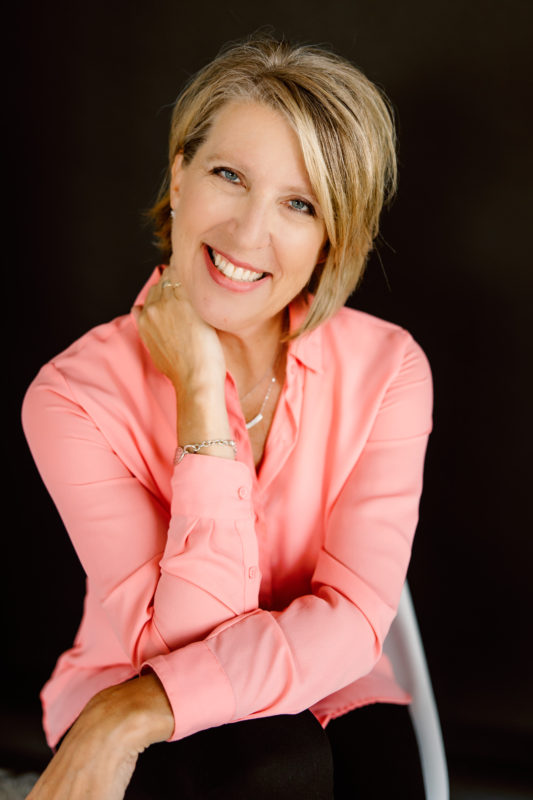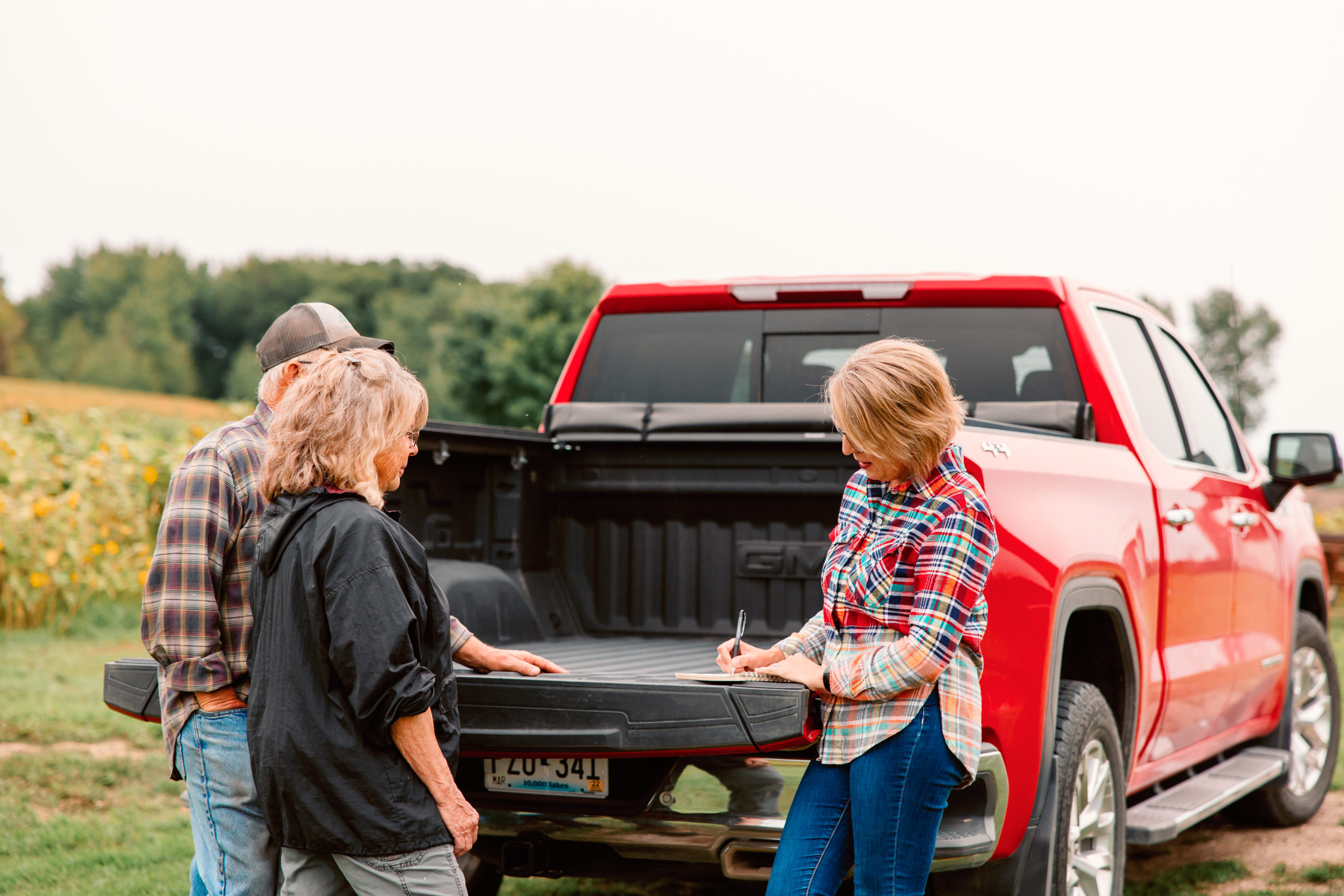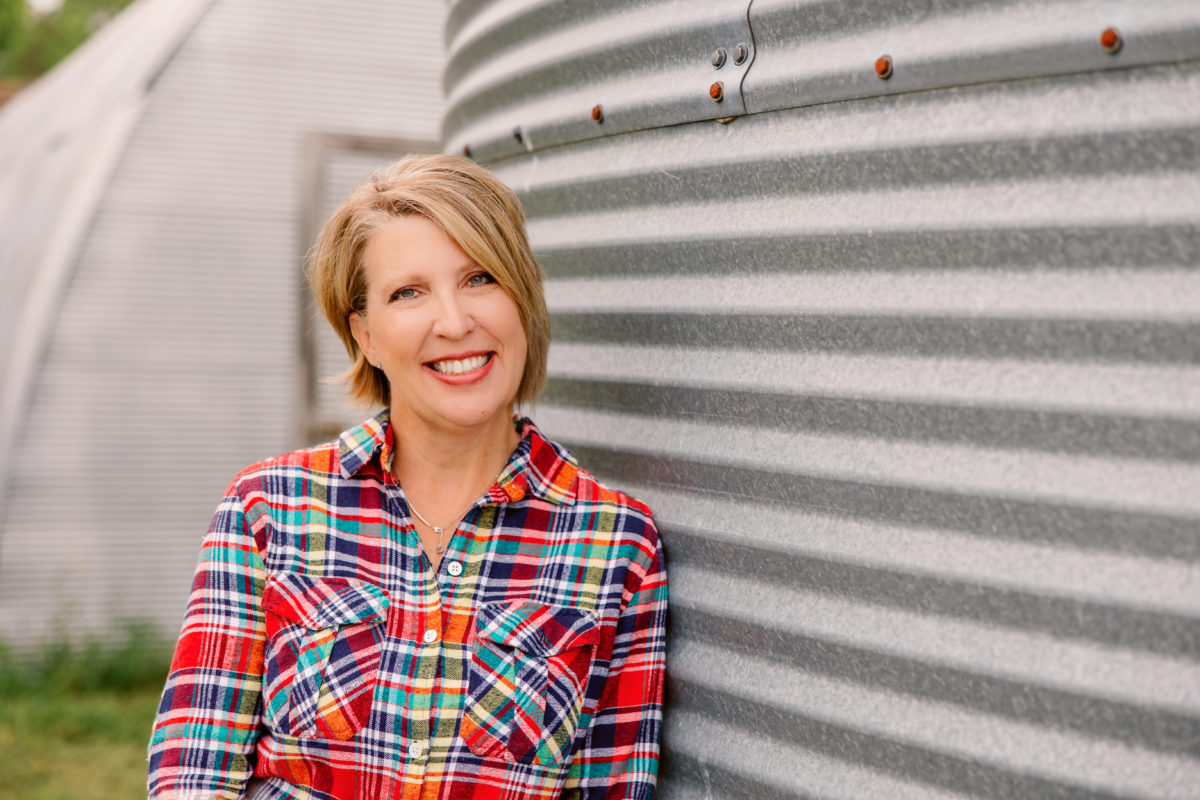“Do not underestimate your ability to impact the lives of others. You exist for a purpose.”
Monica Kramer McConkey is a Licensed Professional Counselor who owns and operates a Mental Health Consulting business called Eyes on the Horizon Consulting. EOTHC specializes in mental health with an emphasis on agriculture producers. Monica joins us from just outside Detroit Lakes in Becker County. Monica is a mother to her three kids ages 18, 19, and 21. She is involved in this organization through webinars, book club, and focus groups.
We are so fortunate to have Monica in our community at 100 Rural Women and to have had the opportunity to speak with her for our Spotlight Profile Series.

What is your connection with rural America?
I grew up on a family farm in Mahnomen County. I worked in the field, was active in 4H, and attended a rural school. I’ve spent my life has in rural areas…living and working. I am passionate about the rural way of life. My great grandparents traveled north from rural Stearns County and started the farm I grew up on. There is great legacy in the farm and working the land. As I started my career after grad school, I really felt drawn to that focus on rural mental health.
I’ve worked in and with rural school districts, mental health agencies, rural counties, and most importantly rural residents. I did direct service work in a school setting on the White Earth Indian Reservation. I went on to be an administrator in a mental health agency based in Bemidji serving rural counties in north-central Minnesota. Then I worked for a psychiatric hospital located in Fargo, which served North Dakota/Minnesota. So yeah, it’s really been an integral part of my life. I have just been drawn to the rural communities. I guess it’s part of who I am; it’s in my heart and soul.
Tell us more about your work and Eyes on the Horizon Consulting
The mission of Eyes on the Horizon is to increase access to, and decrease the stigma of, behavioral health services in rural areas.
I started Eyes on the Horizon in 2016 and at the time, I was working full time, but I was getting a lot of requests to do speaking and training around Farm stress and farm mental health. So I started my business while working full time and I went to my boss (who was a male) and I just said, “just so you know, I’m doing this thing on the side, it will not hinder my performance or fulfillment of my job duties here. But I just want to be upfront and let you know.” and his response to me was, “Oh, so you’re telling me not asking me?” And I was like, “Pretty much. Yes.” There was no way I was going to ask for permission to pursue my own business.
So yeah, I built it up over the course of a couple of years while working full time, and mainly just through networking, and connections. I rarely say no to an opportunity, especially when I was starting my business. I felt like that was what I needed to do to get rolling and establish connections.
In October of 2019 I was able to go full time in my business, so I quit my job. It’s just been wonderful to experience. I would have never dreamt I would be doing this in my life. It’s just such a blessing. I’m a Christian, and I just feel like, everybody has a purpose for their life.
When you’re ready for your opportunities when they come and you’re willing to work hard, things fall into place in a way that you could have never even direct.
I currently work with a number of organizations to provide mental health training and consulting services as well as providing counseling. My primary contract is with AgCentric/MN Department of Agriculture providing mental health outreach and counseling to MN farmers and farm families. I do a lot of work on the North Dakota side, as well as my work on the Minnesota side. And I also work with some employers to do workplace mental health.
So yeah, it’s exciting, it’s dynamic, it’s, every day is different. I control my schedule. So I just love it. I, I love my work. I love what I do. And like I said, I never dreamt that I would have these opportunities. So I feel very blessed.
What was it like, taking the leap to start your own business?
You know, there’s that security that comes with a job and benefits and, and so branching off on your own is scary. But I think when you’re in a position of working, where you’re passionate, and you put yourself out there, I think doors open. I know doors open and doors close, but it leads you in the path that you’re meant to go. It’s kind of this balance of taking the opportunity when the doors open, not being discouraged when the doors close, and believing there’s something else out there. I look back in my career and I had applied for different jobs and things and didn’t get them

and at the time I was devastated because I was like I really want this and it would have been more money or whatever it would have been something I thought I wanted to do. But it looking back now it would have led me in a completely different direction. Trust your higher power, whatever that is, that there’s guidance in life leading you in the path that you’re meant to go to fulfill your purpose. I 100% believe that. It’s all about being open to opportunity, being willing to work hard, and putting yourself out there.
Why do you feel it is important to focus on mental health in rural areas specifically?
Access is a critical issue regarding mental health services in rural areas for a number of reasons. First, there are significant workforce shortages in the behavioral health fields from psychiatrists to therapists/counselors so rural residents either need to travel significant distances or endure long waits for help. Second, even when tele-therapy is an option, there are distinct challenges. Broadband is insufficient in many rural areas to support virtual sessions. The rural population is also aging and many are uncomfortable navigating technology. Third, the isolation that often comes with living in rural areas can exacerbate feelings of anxiety and depression. Suicide attempts and deaths by suicide are common. An added difficulty is due to distance for emergency personnel to travel to respond to a suicide attempt, it is often too late.
My dad is an example. So not a female, but talking about rural mental health back in the 1980s. During the farm crisis, he experienced all kinds of anxiety. I remember it as a teenager he sought out a therapist, which was, like, totally unheard of in rural areas at that time. This therapist was for farmers and he would be stationed at the county courthouse one day a week. My dad talks about the stigma of having your vehicle parked at the county courthouse that day. Everybody knows what you drive. Everybody knows your truck, everybody knows. I remember that growing up as a kid.
It’s not just that either. Then you have to walk through the courthouse and you went to school with the person who works in the licensing department so there’s just the stigma around seeking mental health services in rural areas.
It’s getting better and it’s becoming more of a conversation, but still a really huge stigma. One of the best things that’s happened in rural areas is that mental behavioral health services have become embedded in rural clinics. If you park outside of your local clinic, nobody knows if you’re there for a flu shot or if you’re there for a therapy appointment. Not that it should have to be that way. I think it just helps people feel more comfortable in seeking out help. So if you think about being in a position of leadership in a rural community and struggling, that’s like all eyes are on you almost anticipating or waiting for a failure to come. It’s kind of incredible.
What is a moment you felt discouraged? How did you overcome it?
Oh wow…so many discouraging times. I had to grieve what needed to be grieved, get back up, change my thinking, and move on. There’s one specific thing that is very personal and not even on the career side of things, but I think women can relate to this.
I was in a marriage for 14 years, that was not healthy. It kept me from being the person I knew I could be. It kept me from exploring paths that would reach other people. I wasn’t fulfilling my purpose because I was in this icky relationship filled with toxicity and emotional abuse. And I had three little kids so it was very hard, very, very hard.
I remember just, you know, lots of tears, lots of pain. Ultimately, I left and filed for divorce. Then it was kind of a few years of my life and re-establishing who I was as a person. My career at that point then took off. My focus, of course, was on nurturing the kids and helping them through that transition. But I will tell you, that I could have stayed bitter.I could have stayed stuck in a victim mindset from that whole experience, but I put it behind me. I went to therapy, my focus was very forward-facing, I forgave, I didn’t hold on to things, I didn’t ruminate about things, I just moved on. And in that moving on, I mean, that led to a lot of really great open doors.
But ultimately, the blessing from that whole experience was that when I work with women now who are in very difficult relationships, I can empathize with them and help them and understand them in a way and never ever could have before. Now that I’m on the other side of that, it’s a tool for me to help others.
So when you talk about going through disappointment and difficult times, I firmly believe it’s all about learning the lesson and then don’t stay stuck there. Move on, move forward. Don’t hold on to the shakiness, change your mindset, change your thinking, and get up and go. And that’s, you know, it’s not always easy. It doesn’t happen overnight. But there’s power in forgiveness and moving forward and letting go of what doesn’t serve you and moving forward.
Did being rural impact this time for you?
In rural areas, you are known and your family is known and your grandparents are known. It’s hard for anything to happen without it being kind of in the spotlight. So, yes, I think there’s definitely a difference.
I can tell you that throughout the divorce, I was judged. I actually re-read The Scarlet Letter and watch the movie because I just felt like that was how I was judged. Like, how dare you as a female and a mom, choose to leave a marriage that for in everybody else’s view was good and sound and solid. My pastor called me to his office and had a chat with me. Shortly after, I left the church because of the way both he and the assistant pastor handled it. I guarantee you that my he didn’t bring my ex into the office for a talk. So yes, I do think being rural impacted this event. I never thought about it before, but I definitely do think there’s a difference in going through difficult times like that in a rural setting versus urban because there’s no blending in.
There’s no “stuff happening under the radar.” It is like, out there, everybody’s gonna talk about it. Everybody knows you, everybody knows your family, so there’s no kind of escaping it. There’s no blending in. So yeah really interesting question to think back on now. As long as you stay in that community or anywhere in the surrounding communities, you never get away from that story attached to you.
How do you lead and create change in your community and how can your community better support rural women?
I try to be a positive force in my community by being an approachable resource for people who are hurting. I try to pay back because I have been incredibly blessed. One way to pay back is volunteering. I currently mentor a 12-year-old girl through the Kinship program and have also served an local organization boards.
Who or what has been your biggest inspiration?
My parents. They are truly incredible. Meeting in high school, they married young, had three kids, and worked hard through difficult times. They have always given me the message to “go for it” … that there is nothing I can’t accomplish. Through the way they live their lives I’ve also learned about the power of faith and resilience.
If you could give one piece of advice to your former self, what would that be and why?
So many words of advice! The two that come to mind right away are:
- Do not underestimate your ability to impact the lives of others.
- You exist for a purpose.



